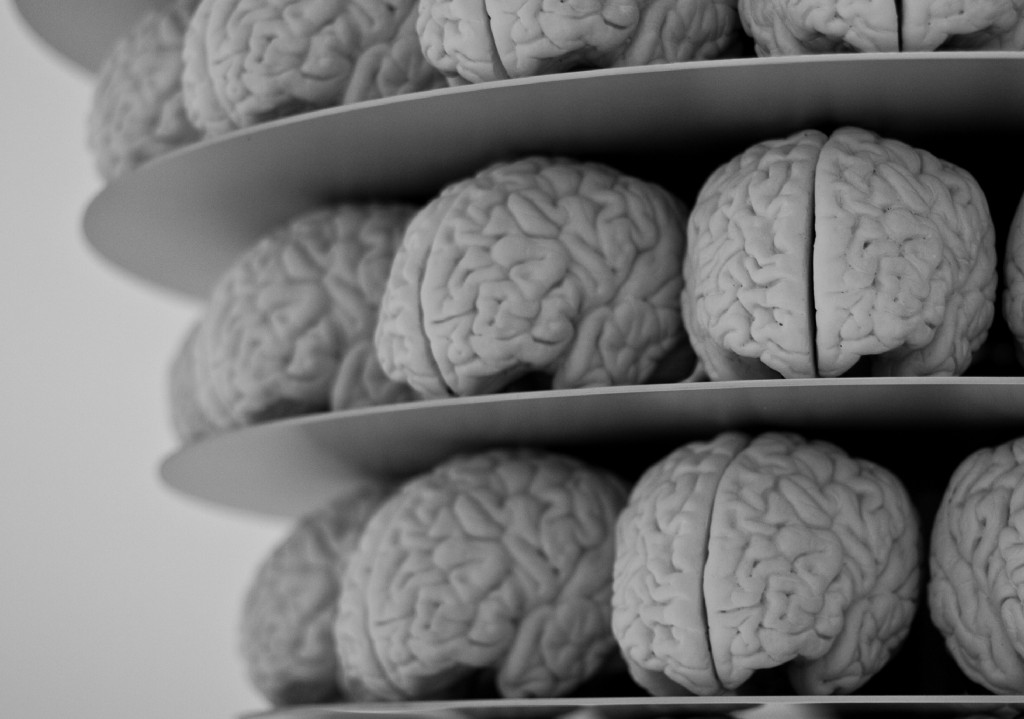The Bad News Is Your Brain Loves Bad News
Gotcha.

Here’s something I’ve been noticing the past ten days: I only want to click on devastatingly heartbreaking links. As this new presidency lurches forward like a rusty mine cart in a tunnel to the earth’s molten core, you’d think maybe I’d be more interested in content from Old Friends Senior Dog Sanctuary or something—stuff that’s light and life-affirming—but no. I even feel a little offended seeing things in my feed that aren’t cataclysmic in nature. How dare someone tweet about parking, or Instagram their Crunchwrap Supreme, during a time like this?
Apparently, though, I am not a freak. At least according to University of Michigan political science professor and social researcher Stuart Soroka, who studies how our brains respond to news content. According to him, we as a species might be “neurologically or physiologically predisposed” to focus on negative information:
It is evolutionarily advantageous to prioritise negative information… because the potential costs of negative information far outweigh the potential benefits of positive information.
So basically, your animal brain is always worried about dying, and negative information is quite likely the information that will contain clues about potential bodily dangers, so your brain stars all of those messages in its inbox. “Hm, seems bad,” it says, marking Steve Bannon’s face as unread. “Better hang onto this in case it tries to kill me later.”
Our findings suggest that negative network news content, in comparison with positive news content, tends to increase both arousal and attentiveness. In contrast, positive news content has an imperceptible impact on the physiological measures we focus on. Indeed, physiologically speaking, a positive news story is not very different from the gray screen we show participants between news stories.
In addition to seeking out that negative news, we’re also hard-wired to focus better on negative things whether we want to or not. Even people who claim to prefer positive news respond more to negative headlines in a controlled study, like this one Soroka ran with Marc Trussler at McGill University. Subjects were given a menu of links to click on and told to select an article to read all the way through—the tone of the pieces ranged from negative to positive. Subjects thought they were being tested for how their eyes behaved while they were reading, and that the topics covered in the articles didn’t matter, but scientists were actually monitoring which links got chosen from the menu most often:
Participants often chose stories with a negative tone — corruption, set-backs, hypocrisy and so on — rather than neutral or positive stories. People who were more interested in current affairs and politics were particularly likely to choose the bad news. And yet when asked, these people said they preferred good news. On average, they said that the media was too focussed on negative stories.
In other words, positive news is great, but because of those aforementioned concerns re: imminent danger, our brains don’t really get worked up about the good stuff long-term. Our brains with good news are like cartoon eight year olds getting a birthday card with nothing inside—thanks sincerely, but, ya know… on to the next present.
In lab experiments, flash the word “cancer”, “bomb” or “war” up at someone and they can hit a button in response quicker than if that word is “baby”, “smile” or “fun” (despite these pleasant words being slightly more common). We are also able to recognise negative words faster than positive words, and even tell that a word is going to be unpleasant before we can tell exactly what the word is going to be.
Basically: we’re horny for conflict. We can lie and say we’re not, we can seek out posi content until our fingers bleed, but at the end of the day, our neurological system is still quite invested in our continued non-perishing. So if there’s something negative within reach, it’s going to catch our eye, even when we don’t want it to.
I won’t say the words “self care” to you because I respect you too much, but the solution when you feel too inundated with bad information appears to be simply cutting off the flow of information for a second. If you catch yourself feeling stressed, water your plants. Take our the trash. Stare deeply into your pores in the mirror. Whatever gets you off. That little bit of a punctuation mark ends up being a fulfilling vacation from new data for your brain. Plus moving always bumps you up a few points mood-wise (and I’m not even talking exercise, I’m talking like… reaching for a plate in your cabinet).
It’s normal to be interested in the bad things on our screens, it turns out. We should just also maybe light a candle or something while we’re at it.
